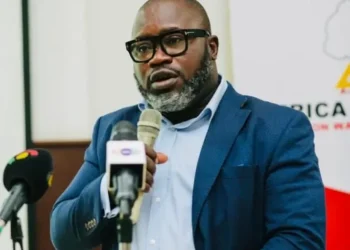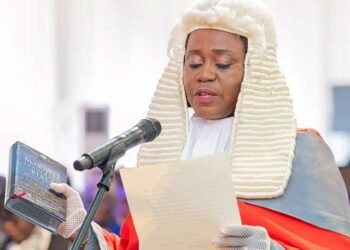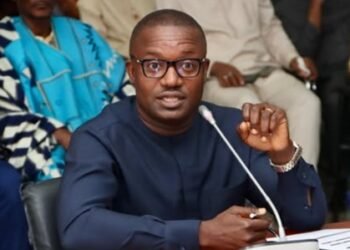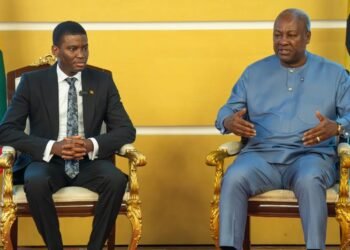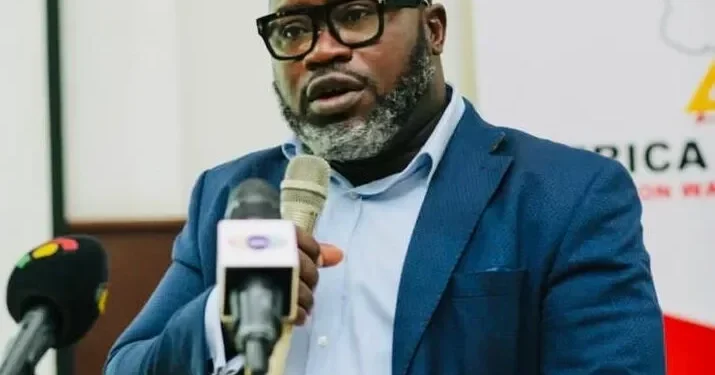In a recent interview with the Vaultz News, Dr Ishmael Kwabla Hlovor, a renowned Political Science lecturer at the University of Education, Winneba, shared his insightful analysis on how political parties’ manifestos could shape voters’ decisions ahead of Ghana’s 2024 general elections.
According to Dr Hlovor, while manifestos have historically played a limited role in influencing voter choices, the dire state of the country’s economy will make them more pivotal this election cycle.
Dr. Hlovor emphasized that the upcoming December 7 polls will likely be dominated by the prevailing economic issues, including high inflation, unemployment, and the rising cost of living.
He acknowledged that both the New Patriotic Party (NPP) and the National Democratic Congress (NDC) have proposed economic policies aimed at addressing these challenges, but he criticized the lack of detailed implementation strategies in both parties’ manifestos.
“The proposals outlined by both the NPP and NDC lack the necessary depth on how their solutions will be executed. While voters may be drawn to the promises of economic relief, they will also be looking for clarity on how these promises will be fulfilled”.
Dr Ishmael Kwabla Hlovor, Political Science lecturer at the University of Education, Winneba
However, he highlighted the NDC’s 24-hour economy policy as an initiative that has the potential to resonate with voters, citing its appeal in addressing the country’s economic challenges.
Governance and Corruption: Silence and Promises
Turning to governance and corruption, Dr Hlovor expressed no surprise at the NPP’s failure to outline a robust plan to combat corruption in its manifesto.
He noted that it is common for opposition parties to make grand promises regarding anti-corruption measures, referencing the NPP’s bold anti-corruption rhetoric ahead of the 2016 elections, which, in his view, has not translated into substantial action.
“The corruption situation in recent years has worsened compared to 2016,” he lamented. Dr. Hlovor acknowledged the NDC’s commitment to undertake comprehensive governance and constitutional reforms aimed at improving transparency and reducing corruption.
He particularly noted that both the NPP and NDC acknowledge the need to reduce the size of government, a stance he considers essential given the strain an oversized government places on public finances.
The Hidden Threat of Political Party Financing
Dr Hlovor expressed grave concern about the opaque methods of political party financing in Ghana, suggesting that this is a major factor behind the country’s persistent corruption issues.
He drew a direct link between party financing and the government’s failure to tackle illegal mining, or “galamsey.”
“Individuals engaged in galamsey often finance political campaigns, creating a complex web that makes it difficult for any government to effectively combat illegal mining”.
Dr Ishmael Kwabla Hlovor, Political Science lecturer at the University of Education, Winneba
He went further to accuse successive governments of rigging public procurement processes by awarding contracts to party financiers, cronies, and supporters without ensuring value for money.
Dr Hlovor called for urgent reforms in the regulation of political party financing, which he believes is crucial to curbing the country’s corruption crisis.

Social Interventions: Populism or Progress?
On the subject of social services, Dr. Hlovor acknowledged that policies like the Free Senior High School (SHS) program, introduced by the NPP, have had a significant electoral impact in the past.
However, he criticized the poor implementation planning, which has led to the program’s current challenges.
He urged political parties to provide detailed implementation strategies for their social intervention policy proposals , including cost estimates and sources of funding, to avoid future crises.
While praising the NDC’s ambitious social intervention policies, such as free primary healthcare, free menstrual pads for girls, and no academic fees for first-year tertiary students, Dr. Hlovor reiterated the need for detailed execution plans.
“The impact of these policies on voters will depend on how well the NDC can explain and justify their feasibility,” he stressed.
Debt and Fiscal Sustainability: A Missing Puzzle
One of Dr. Hlovor’s main criticisms was the failure of both the NPP and NDC to address how they would finance their ambitious policy proposals, given Ghana’s current debt situation.
He expressed scepticism over both parties’ promises to reduce government expenditure as a means to save money, stating that these pledges are insufficient without clear, actionable strategies.
“The claims to reduce expenditure are vague, and neither party has offered a clear-cut plan on how these savings will be achieved and allocated,” Dr Hlovor asserted, adding that voters are likely to demand more clarity on these fiscal promises as election day approaches.
Vision for Ghana’s Future: A Shared Shortfall
When asked which manifesto offers a more compelling vision for Ghana’s future, Dr Hlovor declined to endorse either, arguing that both manifestos fail to meet the expectations needed to steer the country forward.
He pointed out that neither party has addressed critical issues such as Ghana’s geopolitical stance amidst the shifting dynamics in the Sahel region, nor has there been any substantial discourse on the country’s evolving relations with global powers like China, Russia, and the West.
In conclusion, Dr. Hlovor emphasized the growing importance of political manifestos in the upcoming elections, particularly given the public’s heightened focus on economic recovery and governance reforms.
However, he maintained that both parties need to provide more concrete and detailed plans if they hope to earn the trust and votes of the Ghanaian people.
READ ALSO: GSE Market Capitalization Falls by GHS 100 Million as Turnover Declines by 18%





